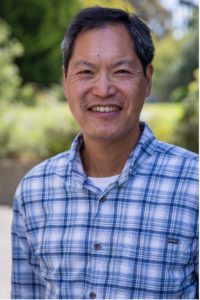
I am appreciative of the opportunity to interview Dr. Russell M. Jeung, who is a Professor of Asian American Studies at San Francisco State University and co-founder of Stop AAPI [Asian American Pacific Islander] Hate. His efforts in tracking anti-Asian incidents during the COVID-19 pandemic has received widespread attention in both academic and public spheres, and his work has been featured in prominent outlets such as NPR, NBC News, CNN, Washington Post, and New York Times.
It’s safe to say that your tracking site has become the “go-to” source for statistics involving anti-Asian incidents. Could you provide a brief overview of how this work came to be, including how you personally became involved with the creation of Stop AAPI Hate?
Stop AAPI Hate was launched in March 2020. I knew that with COVID-19 coming from China that Asians would be blamed, and they would face racism, because that’s what happened with SARS. I began to track news accounts because that was the only data we had. I noticed globally that there was a rise in anti-Chinese acts of racism or discrimination. And I did two reports looking globally and nationally of news accounts. So, with that data, I knew there was a clear rise in anti-Asian racism, and we needed to document firsthand what was happening. I teach public policy, and I knew that policy makers respond to data on racial disparities. I wanted the government to create a tracking center, because I figured it was the government’s responsibility. But I didn’t want to go nationally because I didn’t think Trump’s administration would be responsive. So, I thought we would create a pilot program in California. I worked with two nonprofits, Chinese for Affirmative Action and the Asian Pacific Policy Planning Council, and we approached the Attorney General of California, but they said “No.” So we began to work with the API (Asian & Pacific Islander) Legislative Caucus, which is the Assembly members and Senators in California. They were supportive of the project, and we launched STOP AAPI Hate with six different languages in March. Initially we had a real strong flood of incidents reported to us. It went all year and continued this year. So, we knew history would repeat itself, we knew we needed data to document what was happening, and we needed to come up with good solutions to the issue. Also, we wanted to build a movement; rather than simply collecting data, we needed to mobilize the Asian American community.
In your scholarship, you have been open about your faith and how it shapes the work. In particular, how does a Christian worldview inform the work that you are doing to raise awareness about anti-Asian racism?
I think about seeking first the Kingdom of God and His righteousness. And for me, that’s what this is. Fighting racism is part of God’s Kingdom, and righteousness in God’s Kingdom involves right relations with God and with each other, society, and creation. And clearly, attacking or killing elderly Asian people signals something wrong and broken. I’m pursuing what God would want; being obedient to God’s call is reflected in pursuing justice in this world. We should meet the needs of the marginalized. We should correct systems that are broken. We should call leaders to repentance and to holiness. It’s also a part of being obedient to God’s call for justice. It’s being a model of Christ’s grace and forgiveness.
And then, I think about what’s facing Asian Americans; they’re being mistreated because they’re perceived as foreigners. And the Bible says a lot about the treatment of the foreigner. I think that America’s treatment of those whom they perceive as outsiders is sinful. If you’re a foreigner, then we feel like we could build a wall against you. If you’re a foreigner, we justify separating your family. If you’re perceived as a foreigner, it’s okay to mock you and to deny you services. It’s okay to objectify you, and to shove the elderly. That’s the only way I could understand how people could treat Asians so badly at this moment, because they see us as outsiders and others; and Americans treat foreigners and others really badly.
But the Bible says that you have to remember that you were all foreigners. You have to provide hospitality to the foreigners. You have to treat the foreigners as yourselves. To make room and care for the foreigners, even with your own wealth. And then, in the New Testament, we’re supposed to remember that we are actually foreigners to this world, and to live in a different value system. Citizenship in heaven doesn’t include racism or discrimination.
Perhaps more than ever before, colleges and universities, including Christian colleges and universities, are hungry for ideas to best support their Asian and Asian American students, faculty, and staff. What suggestions do you have for college administrators?
First of all, the administration has to make official statements denouncing the racism and supporting the Asian American community at the moment. We need to make those types of statements for two reasons. They’re not simply symbolic, performative acts. They’re important because Asian Americans now feel invisible and unheard, and these official statements make us feel heard and seen. Secondly, hate was normalized last year. With Trump’s words of the “China virus,” we saw how that hate speech went viral and led to hate violence. What we need is to normalize love and respect, even in the Christian subcultural context. Even though it’s obvious, it needs to be restated officially, to create a campus culture of respect for all people.
Beyond the official statements, you must put your money where your mouth is and really follow up. If you’re going to truly support Asian Americans, then you don’t just make it a one-off statement, but you put efforts into addressing the issue, first of all, and then continuing the efforts of uprooting racism and pursuing racial justice and empathy. Students’ mental health is really imperiled because of the pandemic and the racism. Administrators need to provide listening sessions, support for Asian American student groups, and additional mental health staffing to care for their students at this moment. So that’s the basics: care for the well-being of your students and their mental health as they’re concerned about their elderly, as they’re concerned about their siblings.
If there is harassment at the school, then you have to have institutionalized mechanisms to address bullying or online harassment or hostile school environments. If there is an anonymous reporting center, there should be official action taken based on the reports, so that students know that if they report something, action will actually be taken. It’s stupid to report if nothing happens. I think this is why most people don’t report to the police, why they don’t report bullying, because they don’t think anything’s going to happen. You have to actually institutionalize mechanisms where you do take action and become responsive.
Going even deeper, you have to not only make statements about society at large, but you have got to put your own house in order, and you have to see how you’re treating Asian American faculty and staff who are the role models, mentors, and pastors to the students. Are you inclusive and promoting of Asian American staff and scholars? This is another necessary step to show that you really are in solidarity with Asian American students.























One Comment